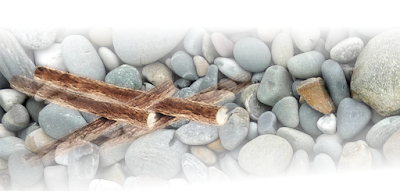Sticks and Stones may break my bones but words will never hurt me.
... or is it names? Whichever.
But - do we think about what it means?
The origin of this site has come from several different aspects of my life. My professional life, where the proper use of words is important in order to properly convey a point to a colleague. Most important in an age of text-based communication: email, chat, blogs, phone-texts, etc. My personal life, where I try to instill the use of words and their importance to my children. This not only involves the use of the right word in the right moment, but the tone of the spoken word. (If you have more than one child, you know what I'm saying when it comes to their "discussions.") My political life, which has predominantly been a "hobby" in following politics. That's to say that I follow the political happenings that impact my life - city & county, state, and national politics. They impact me as well as you to varying degrees.
I will go into each of these areas in the articles that will be written here. For it is important to have, read, and understand different viewpoints, and to consider that what you read may not be what is really being said. And there are consequences of what is being read vs. what is being said when one reacts to one and forgets or doesn't consider the other.
What about the sticks and stones phrase?
When I started putting this site together as Sticks and Stones and not just a family web site, I looked around. I found many other sites with "Sticks and Stones" referenced. From single blog posts that talk about words as well, to Biblical-based sites to philosophy and psychology writings. This latter part is actually why I wanted to start my own discussions; for in this early part of the 21st century, most writings I have seen have now changed the age-old saying.
Sticks and stones may break our bones. But words will break our hearts.
This change is most attributed to author Robert Fulghum. I don't know this author or his work, but I'll likely be looking into his writing going forward. And I give credit where it's due.
But I think this change - and some of its variations I've seen - forgets what the original saying is really trying to do. Yes, the new phrase accurately reflects - or has it contributed to? - the way today's society tries to think about the words that we say to one another. But the original phrase wasn't misleading, and holds more power than most people today give credit. For I've had conversations with people who say, "But words do hurt." It's not that words don't hurt, but what we are called to do about them.
The original meaning of this phrase is a lesson for children.
It isn't meant to be taken directly that words can't hurt, but rather to direct an action. If someone calls you a name, no matter how heinous, don't place the blame on them. (Even though you're not incorrect to do so.) Rather, take it upon yourself what you can control: your own action & reaction. Don't let someone else control who you know you are. You know that you don't represent a racial slur, you're not labeled as a certain thing, not defined by a single word. You are a dynamic and unique entity on this earth. And no one can take that from you.
Society has gone beyond trying to enlighten people of their ignorance with respect to word usage.
It used to be teasing. Now it's bullying
It used to be vulgar. Now it's hate speech.
It used to be insensitive. Now it's a punishable offense.
It used to be one person's problem. Now it's society's fault.
By our very nature, we are independent beings. We need to remember that individual acts and individual words are independent of the surroundings. And they can be addressed independent of the surroundings. We aren't a society without individuals.
Hopefully, some of these items will be a refreshing outlook if not just a different one for you. I hope you will consider them nonetheless. Because if we can't talk to one another, we'll end up hurling Sticks and Stones.

No comments:
Post a Comment